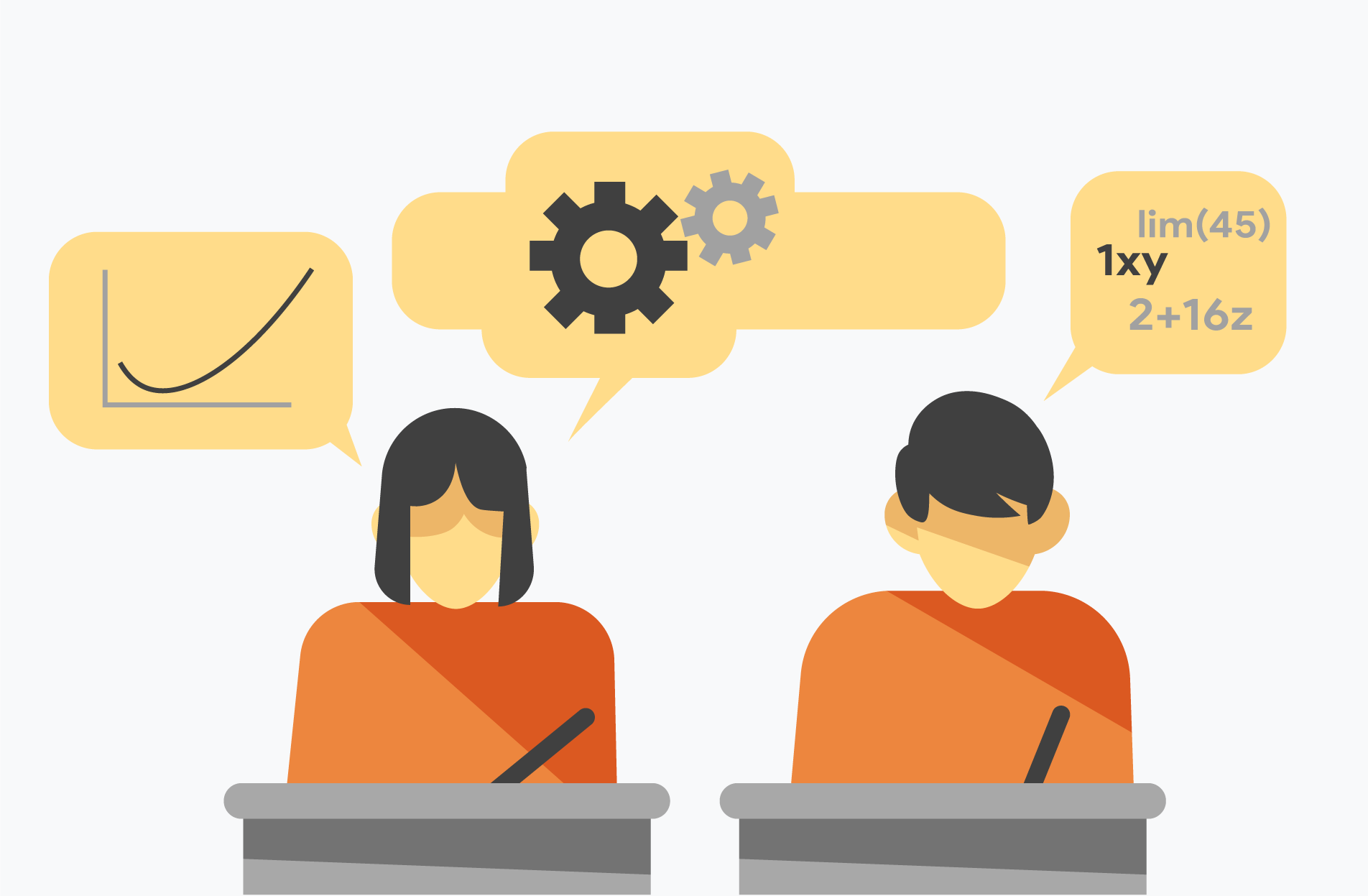Using Aptitude Tests in Your Recruitment Process
An aptitude test measures the candidate's ability to reason and learn new skills. Aptitude tests are used throughout the world to screen applicants for jobs or educational institutions to screen prospective students.

The average cost of one bad hire is almost $15,000. It is important to note that bad hires cause a negative ripple effect with their presence in the organization. Apart from the obvious monetary loss, bad hires may also be responsible for poor performance and disengagement among employees.
This is why pre-employment testing, such as the use of aptitude tests, are important during hiring. Aptitude tests can be an essential part of an organization’s recruitment process.
Aptitude tests are being used to screen potential talent across sectors and industries for long and also internal training and promotion.
Read on to know more about career aptitude tests are and how their addition can be beneficial in your recruitment process.
What are Aptitude tests?
Aptitude tests serve as an effective way to gauge candidates' strengths, weaknesses, and areas of potential. While aptitude tests can’t be used for every skill out there, they can help predict performance in certain areas. There are multiple types of aptitude tests – based on the job, organizations can administer tests for understanding a candidate’s skills, knowledge, ability, or personality.
Here are some of the things that aptitude tests evaluate:
- Critical thinking
- Dexterity/Manual efficiency
- Creativity
- Leadership
- Linguistic and Numeric skills.
- Organizational skills
- Data checking
- Verbal, Abstract, and Spatial reasoning.
Examples of Career Aptitude Tests
Some examples of aptitude tests used for recruitment include:
- A test assessing a candidate's aptitude to become a fighter pilot.
- A graphic designer aptitude test evaluating a candidate's capability to work as a graphic designer and illustrator.
- An analyst aptitude test is given to entry-level business analysts to determine their core areas of strengths and weaknesses.
- A computer programming aptitude test to determine how a software engineering candidate might solve different hypothetical problems.
Benefits of using Aptitude Tests
Cognitive aptitude, also known as general intelligence, is the single most accurate predictor of job performance. Organizations prefer the use of aptitude test for the following reasons.
- Objective – When comparing a set of diverse candidates, it is almost impossible to compare them to one another without being subjective. Recommendation letters, experiences on resumes, interviews, and cover letters can all be interpreted in different ways. On the other hand, aptitude tests are judging candidates on objective criteria and have no way of bringing inherent biases to decisions.
- Efficient – With increased digitization these days, aptitude tests are more efficient than ever. It is more common to see online aptitude tests that are pretty easy to administer and don’t cost a lot of money. In addition, results come back quickly. When recruiting is done manually, it can take hours to judge a single candidate.
- Standardized – When tests are standardized, there is a guarantee of receiving accurate results. A lot of research is done into making reliable and valid tests that can be used across the board. Having a standardized testing process can be useful in legal issues in which your recruiting method may be questioned.
- Assess training needs – Because aptitude tests measure a lot of different qualities of a candidate, it is easy to see what skills are frequently less prominent than others. A group of candidates may be good at various things, for example, but may all need to work on critical thinking. Recruiters can use this information to create a more personalized and effective training process for new hires.
Drawbacks of using Aptitude Tests
It is easy to compare candidates based on the score of their aptitude tests but no test has ever been created that can completely measure an individual's potential and performance. This is why certain critics consider aptitude testing to be futile. Below are some of the arguments.
- Implicit biases – Everyone comes from a different cultural and socio-economic background. Aptitude tests may inherently favor those that grew up speaking English or those with common knowledge of cultural trends in the area. This can eliminate a lot of diverse candidates who have an aptitude for some skills.
- Not always good performance indicators – Even if a test is well-designed, there are a lot of other factors that affect job performance. Someone may have an aptitude for something, but they may also be unmotivated or uninterested.
- Favors good test-takers – With standardized testing, there are ways to “hack” the system and learn how to answer the questions. For example, with the SAT, students can prepare for the exam by picking up trends in the types of questions asked or knowing how to eliminate wrong answers just by looking at them. It can be difficult to design questions that can’t be “memorized” beforehand.
- Test Anxiety – Some individuals can get stressed out during tests, even if they are qualified. Anxiety can affect candidates both physically and mentally, causing candidates to freeze or answer questions incorrectly. It is important to make sure that candidates are comfortable throughout all stages of a recruiting process.
Types of Aptitude Tests
Based on the skills and capabilities to be tested, below listed are the different types of commonly used aptitude tests.
- Numerical Reasoning Test
Numerical reasoning tests are standardized aptitude assessments that provide information about a candidate’s general numerical aptitude. A numerical reasoning test is designed to assess a candidate’s ability to make correct decisions or inferences from numerical and/or statistical data.
- Verbal Reasoning Test
Verbal reasoning tests are designed to gauge candidates' ability to understand language and how factual their conclusions are from the written material. Verbal reasoning tests are designed to help recruiters screen candidates who can understand, analyze, and comprehend from written materials.
- In-Tray and E-tray Tests
In-Tray and E-Tray tests are designed to provide the hiring professional with measuring candidates' general ability to manage and respond to a series of different tasks, to negotiate conflicting demands and analyze different priorities.
The assessment contains questions regarding a fictional business-related scenario where the candidates are given a particular job role. The only difference between the In-Tray and E-Tray assessments is that the E-Tray test is an online test. The In-Tray exercise is an offline test.

- Watson Glaser Critical Thinking Tests
The Watson Glaser critical thinking test, simply known as critical reasoning test, is a commonly used aptitude test that is frequently used during recruitment. Critical thinking tests can be used for assessing candidates from entry-level positions to the managerial level. The test measures the following:
- Critical thinking ability.
- The problem-solving approach of the applicant.
- The ability to recognize assumptions being made, creating hypotheses, and evaluating arguments.
- Mechanical Reasoning Tests
Mechanical reasoning tests measure the applicant's depth of ability and competency with mechanical concepts. Mechanical reasoning tests are employed for recruiting individuals for technical and engineering job positions. These tests include questions relating to mechanical and engineering concepts and are designed to gradually increase in difficulty if the previously answered question is correct.
- Situational Judgement Test
A situational judgment test is helpful for gauging a candidate's understanding in a given work-place scenario and critical assessment of their problem-solving approach related to work and situations that may involve other co-workers, the management, and/or the whole company itself.
The way the candidate approaches and tackles the problems help predict how they would perform at the job.
- Logical Reasoning Test
Logical reasoning tests are one of the most commonly used career aptitude tests. Logical reasoning tests are used to gauge the candidate's ability to analyze the logic and establish relationships between objects such as diagrams, images, and patterns. Individuals who perform better on logical reasoning tests tend to have a greater capacity to think conceptually as well as analytically when given basic information.
- Abstract Reasoning Test
Abstract reasoning tests measure the candidates' ability to understand shapes, abstract ideas, and the underlying logic of a pattern to come up with the correct answer. This type of test may be challenging since there will be no words or numbers, but purely illustrations and diagrams depicting different shapes, sequences, and patterns, which measures a candidate's lateral thinking skills (fluid intelligence).
Abstract reasoning tests are commonly used for screening candidates for positions that require decisive problem-solving abilities and initiative to work.
- Spatial Reasoning Test
Spatial reasoning tests are also called spatial awareness tests and are used to measure a candidate's innate ability to manipulate and remember shapes, still images, and extract possible patterns that govern their sequence or their order. Such tests are non-verbal, standardized aptitude assessments that gauge a candidate’s ability to visualize three-dimensional objects presented as two-dimensional pictures and to draw conclusions about those objects from limited information. These tests are often used in technical sectors (such as engineering) but also in the military.
Implementing Aptitude Tests in Recruitment
Aptitude tests are most useful to screen out weak candidates. For this reason, they are often used at the start of the interview process. This helps with creating a smaller talent pool with the best candidates moving forward in the hiring funnel.
Alternatively, you can also choose talent assessment vendors that provide pre-employment assessments combining aptitude tests with other desired skills for a customized screening solution. For example, Technical Aptitude and Java Test that screens software engineering candidates on their aptitude and knowledge of the Java programming language.
It should be noted that, clinical research has proven that aptitude tests are powerful predictors of long-term employee job performance and work-force productivity. Aptitude Tests will help you find out which candidates are unsuited for the role and assist you in making good hiring decisions. No other psychometric assessment tool provides as much added value for HR decisions.


